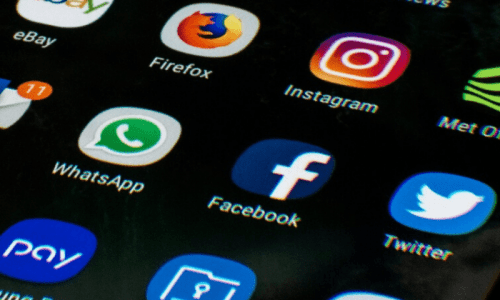Introduction: A City in Crisis
For the past three days, Karachi, Pakistan’s bustling metropolitan city, has been experiencing severe internet disruptions. This issue has had widespread impacts, affecting daily life, business operations, and individuals reliant on digital services. From disrupted Wi-Fi and mobile data connections to the failure of popular social media apps like WhatsApp, Facebook, and Instagram, Karachiites are grappling with the consequences of these outages. The source of these problems appears to be the ongoing protests by supporters of the Pakistan Tehreek-i-Insaf (PTI) party. These protests, aimed at the capital Islamabad, have caused significant blockages and barricades, worsening the situation.
This article examines the various challenges faced by the citizens of Karachi due to these internet disruptions and the ripple effects across various sectors.
Impact on Commuting: Online Transport Services in Limbo
Karachi, despite being a major city, has long struggled with an inadequate public transportation system. As a result, many residents rely on online ride-hailing apps such as Bykea and inDrive for daily commuting. However, the recent internet issues have made it difficult to use these services, leading to severe inconvenience.
Aqdas Jaffar, an employee commuting from Saadi Town to I.I. Chundrigar Road, shares his frustration. “It has been nearly impossible to find a ride. The disruptions make it hard to even connect with drivers. The app keeps crashing, and I’m left stranded,” he explains. This disruption has forced commuters to either face delays or pay inflated fares for alternative transport.
Similarly, Neha, a student at Baqai Medical University, describes the challenges she faces daily. “I can’t afford to miss my classes, but commuting has become a nightmare. I used to book rides at reasonable rates, but now I’m forced to pay exorbitant amounts for the same service. I fear it will only get worse.”
Riders and Drivers: The Backbone of the Economy
Ride-hailing drivers are facing similar struggles. These drivers rely heavily on the income generated through online apps, and the recent disruptions are severely affecting their earnings.
Khuda Baksh, a driver for Yango, expresses his frustration: “I haven’t been able to complete even five rides since yesterday. The map doesn’t load, and the app often crashes, making it nearly impossible to find customers. My entire income depends on these rides, and this disruption is a major setback.”
For these drivers, the inability to work directly impacts their livelihood, leading to financial distress and uncertainty.
Small Businesses at Risk: The Digital Economy Takes a Hit
The internet disruptions have also posed significant challenges for small business owners. Many small enterprises in Karachi rely on the internet for communication with vendors, clients, and even delivery services. With the internet down, these businesses face delays in processing orders, connecting with customers, and managing logistics.
Maham Tariq, the owner of Mayhem Bakes, explains, “Everything from sourcing ingredients to customer service depends on the internet. Without it, my entire business is at a standstill. This is not just an inconvenience; it’s a financial loss.”
Similarly, Syed Talal Rizvi, the founder of Attitude Apparel, shares his experience. “My brand’s operations rely heavily on online communication and advertising. With internet outages, my website has been unresponsive, and my social media ads have failed to generate any leads, resulting in a loss of over 100,000 rupees.”
Content Creators and Online Professionals: Struggling to Stay Relevant
Content creation, a rapidly growing industry in Pakistan, has also been deeply impacted by the disruptions. Whether it’s a vlogger, a social media influencer, or an online educator, content creators depend on the internet to upload and share their work with their audience.
Zia Tabarak of Street Food PK, a popular food vlogging channel, shares his frustration: “The internet outages have made it almost impossible to upload content on time. My social media engagement is significantly lower, and my content doesn’t perform well during these outages. It’s a loss for both me and the businesses I work with.”
For many content creators, these disruptions not only affect their earnings but also damage their reputation and delay brand collaborations.
The Bigger Picture: Economic Consequences of Uncertainty
The ongoing internet disruptions raise serious questions about the reliability of digital infrastructure in Pakistan. Zarrar Khuhro, a veteran journalist, weighs in on the situation, saying, “What we’re seeing is not the ‘new normal.’ The authorities must understand that economies thrive on stability and certainty. With constant disruptions, businesses cannot plan or function properly. People are frustrated and uncertain about what comes next.”
In an age where the internet has become indispensable for everything from business operations to education, such disruptions can have long-term consequences. The lack of dependable internet access undermines efforts to boost economic growth, especially in the digital sector.
FAQs: Answering Key Questions About the Karachi Internet Outages
1. Why is Karachi facing internet disruptions?
The ongoing protests by PTI supporters and the resulting barricades and blockages have caused significant disruptions to internet services in Karachi.
2. How are commuters affected by the internet outage?
Many people in Karachi rely on ride-hailing apps for transportation. Due to the outages, commuters are unable to book rides, leading to delays and higher fares for services.
3. What impact have these disruptions had on small businesses?
Small business owners who depend on the internet for communication, orders, and advertising have faced substantial losses due to the internet outages. Without reliable internet, business operations are severely hindered.
4. How are content creators impacted by the internet disruption?
Content creators, including vloggers and influencers, have faced difficulties in uploading and sharing content. The performance of their posts is also negatively impacted, leading to lower engagement and missed opportunities for brand collaborations.
5. When will the internet disruptions end?
It is unclear when the disruptions will end. As the protests continue, the situation remains fluid, and the authorities are yet to provide a definitive solution to the issue.
Conclusion: A Call for Reliable Infrastructure
The ongoing internet disruptions in Karachi highlight a deeper issue concerning the city’s infrastructure and the country’s digital landscape. With a growing reliance on the internet for work, education, business, and social interaction, it is crucial for the authorities to address these disruptions and ensure that the digital ecosystem remains stable and reliable.
As Karachiites continue to face challenges, it is essential for both the government and private companies to invest in strengthening the country’s internet infrastructure and ensure that such outages do not become the new norm
Karachi Faces Major Internet Disruptions: Daily Life and Economy Suffer
Introduction: A City in Crisis
For the past three days, Karachi, Pakistan’s bustling metropolitan city, has been experiencing severe internet disruptions. This issue has had widespread impacts, affecting daily life, business operations, and individuals reliant on digital services. From disrupted Wi-Fi and mobile data connections to the failure of popular social media apps like WhatsApp, Facebook, and Instagram, Karachiites are grappling with the consequences of these outages. The source of these problems appears to be the ongoing protests by supporters of the Pakistan Tehreek-i-Insaf (PTI) party. These protests, aimed at the capital Islamabad, have caused significant blockages and barricades, worsening the situation.
This article examines the various challenges faced by the citizens of Karachi due to these internet disruptions and the ripple effects across various sectors.
Impact on Commuting: Online Transport Services in Limbo
Karachi, despite being a major city, has long struggled with an inadequate public transportation system. As a result, many residents rely on online ride-hailing apps such as Bykea and inDrive for daily commuting. However, the recent internet issues have made it difficult to use these services, leading to severe inconvenience.
Aqdas Jaffar, an employee commuting from Saadi Town to I.I. Chundrigar Road, shares his frustration. “It has been nearly impossible to find a ride. The disruptions make it hard to even connect with drivers. The app keeps crashing, and I’m left stranded,” he explains. This disruption has forced commuters to either face delays or pay inflated fares for alternative transport.
Similarly, Neha, a student at Baqai Medical University, describes the challenges she faces daily. “I can’t afford to miss my classes, but commuting has become a nightmare. I used to book rides at reasonable rates, but now I’m forced to pay exorbitant amounts for the same service. I fear it will only get worse.”
Riders and Drivers: The Backbone of the Economy
Ride-hailing drivers are facing similar struggles. These drivers rely heavily on the income generated through online apps, and the recent disruptions are severely affecting their earnings.
Khuda Baksh, a driver for Yango, expresses his frustration: “I haven’t been able to complete even five rides since yesterday. The map doesn’t load, and the app often crashes, making it nearly impossible to find customers. My entire income depends on these rides, and this disruption is a major setback.”
For these drivers, the inability to work directly impacts their livelihood, leading to financial distress and uncertainty.
Small Businesses at Risk: The Digital Economy Takes a Hit
The internet disruptions have also posed significant challenges for small business owners. Many small enterprises in Karachi rely on the internet for communication with vendors, clients, and even delivery services. With the internet down, these businesses face delays in processing orders, connecting with customers, and managing logistics.
Maham Tariq, the owner of Mayhem Bakes, explains, “Everything from sourcing ingredients to customer service depends on the internet. Without it, my entire business is at a standstill. This is not just an inconvenience; it’s a financial loss.”
Similarly, Syed Talal Rizvi, the founder of Attitude Apparel, shares his experience. “My brand’s operations rely heavily on online communication and advertising. With internet outages, my website has been unresponsive, and my social media ads have failed to generate any leads, resulting in a loss of over 100,000 rupees.”
Content Creators and Online Professionals: Struggling to Stay Relevant
Content creation, a rapidly growing industry in Pakistan, has also been deeply impacted by the disruptions. Whether it’s a vlogger, a social media influencer, or an online educator, content creators depend on the internet to upload and share their work with their audience.
Zia Tabarak of Street Food PK, a popular food vlogging channel, shares his frustration: “The internet outages have made it almost impossible to upload content on time. My social media engagement is significantly lower, and my content doesn’t perform well during these outages. It’s a loss for both me and the businesses I work with.”
For many content creators, these disruptions not only affect their earnings but also damage their reputation and delay brand collaborations.
The Bigger Picture: Economic Consequences of Uncertainty
The ongoing internet disruptions raise serious questions about the reliability of digital infrastructure in Pakistan. Zarrar Khuhro, a veteran journalist, weighs in on the situation, saying, “What we’re seeing is not the ‘new normal.’ The authorities must understand that economies thrive on stability and certainty. With constant disruptions, businesses cannot plan or function properly. People are frustrated and uncertain about what comes next.”
In an age where the internet has become indispensable for everything from business operations to education, such disruptions can have long-term consequences. The lack of dependable internet access undermines efforts to boost economic growth, especially in the digital sector.
FAQs: Answering Key Questions About the Karachi Internet Outages
1. Why is Karachi facing internet disruptions?
The ongoing protests by PTI supporters and the resulting barricades and blockages have caused significant disruptions to internet services in Karachi.
2. How are commuters affected by the internet outage?
Many people in Karachi rely on ride-hailing apps for transportation. Due to the outages, commuters are unable to book rides, leading to delays and higher fares for services.
3. What impact have these disruptions had on small businesses?
Small business owners who depend on the internet for communication, orders, and advertising have faced substantial losses due to the internet outages. Without reliable internet, business operations are severely hindered.
4. How are content creators impacted by the internet disruption?
Content creators, including vloggers and influencers, have faced difficulties in uploading and sharing content. The performance of their posts is also negatively impacted, leading to lower engagement and missed opportunities for brand collaborations.
5. When will the internet disruptions end?
It is unclear when the disruptions will end. As the protests continue, the situation remains fluid, and the authorities are yet to provide a definitive solution to the issue.
Conclusion: A Call for Reliable Infrastructure
The ongoing internet disruptions in Karachi highlight a deeper issue concerning the city’s infrastructure and the country’s digital landscape. With a growing reliance on the internet for work, education, business, and social interaction, it is crucial for the authorities to address these disruptions and ensure that the digital ecosystem remains stable and reliable.
As Karachiites continue to face challenges, it is essential for both the government and private companies to invest in strengthening the country’s internet infrastructure and ensure that such outages do not become the new norm



